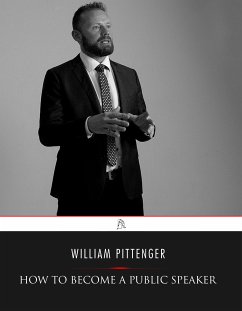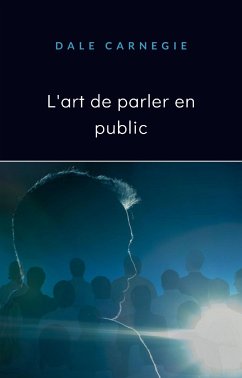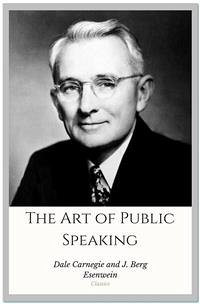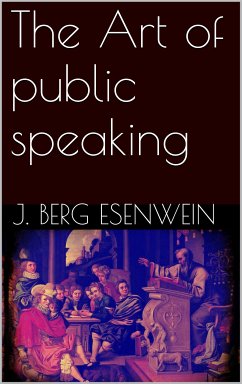
How to Become a Public Speaker (eBook, ePUB)
Sofort per Download lieferbar
2,99 €
inkl. MwSt.
Weitere Ausgaben:

PAYBACK Punkte
0 °P sammeln!
There is a widespread opinion that all study of the mode of oratory is unmanly, and leads to the substitution of artifice and adornment for simplicity and power. “Let a man have something important to say,” it is argued, “and he need not waste his time in trying to find how to say it.” So general is this sentiment, that a ministerial acquaintance of the writer’s was recently very careful to conceal from his congregation the fact that he was taking a series of lessons in elocution, lest his influence should be diminished. We may admit that the popular prejudice against the study of e...
There is a widespread opinion that all study of the mode of oratory is unmanly, and leads to the substitution of artifice and adornment for simplicity and power. “Let a man have something important to say,” it is argued, “and he need not waste his time in trying to find how to say it.” So general is this sentiment, that a ministerial acquaintance of the writer’s was recently very careful to conceal from his congregation the fact that he was taking a series of lessons in elocution, lest his influence should be diminished.
We may admit that the popular prejudice against the study of eloquence is not without a mixture of reason. It is possible to foster a spurious kind of oratory, which shall be far inferior to the rudest genuine speech. But, on the other hand, it is safe to maintain that every rational power man possesses can be strengthened by judicious cultivation, without in the least impairing its quality. There is no trick in true oratory—no secret magic by which a weak-minded man can become the leader of others stronger and wiser than himself. The great prizes of eloquence cannot be placed in the hands of the ignorant or slothful. But so surely as a raw apprentice can be transformed into a skillful workman, any person possessed of ordinary faculties, who will pay the price in labor, can be made master of the art of ready and forcible public utterance.
We may admit that the popular prejudice against the study of eloquence is not without a mixture of reason. It is possible to foster a spurious kind of oratory, which shall be far inferior to the rudest genuine speech. But, on the other hand, it is safe to maintain that every rational power man possesses can be strengthened by judicious cultivation, without in the least impairing its quality. There is no trick in true oratory—no secret magic by which a weak-minded man can become the leader of others stronger and wiser than himself. The great prizes of eloquence cannot be placed in the hands of the ignorant or slothful. But so surely as a raw apprentice can be transformed into a skillful workman, any person possessed of ordinary faculties, who will pay the price in labor, can be made master of the art of ready and forcible public utterance.
Dieser Download kann aus rechtlichen Gründen nur mit Rechnungsadresse in A, B, BG, CY, HR, DK, EW, FIN, F, D, GR, IRL, I, LR, LT, L, M, NL, PL, P, CZ, R, SK, SLO, S, H ausgeliefert werden.













